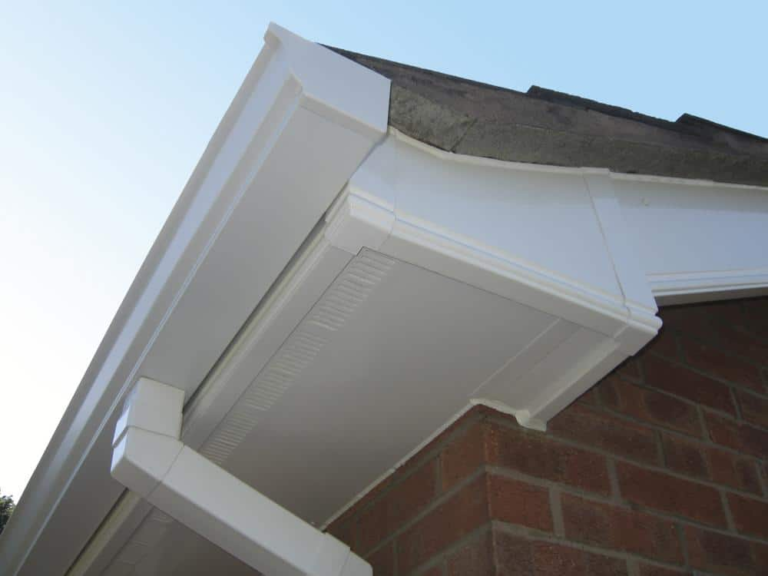soffit-installation4928
soffit-installation4928
Nine Things That Your Parent Teach You About Fascia And Soffit Repair

Fascia and Soffit Repair: Essential Tips for Homeowners
Fascia and soffit are crucial components of a home’s outside, often overlooked by lots of property owners. These elements play a considerable role in protecting the interior of a home from the aspects, while likewise adding to the overall aesthetic appeal of the structure. Understanding their functions, common concerns, and repair methods is vital for maintaining a healthy home. This article will supply a thorough summary of fascia and soffit repair, together with regularly asked questions, an informative table, and checklists for property owners.
What Are Fascia and Soffit?
Fascia
Fascia boards are horizontal slabs that run along the roofline, serving as a key structural element. They provide a finished want to the roof and act as a support group for the bottom row of shingles. Furthermore, they play a number of crucial functions:
- Protection: Fascia shields the roof and underlying structure from water damage and pests.
- Aesthetic appeal: It improves the visual appeal of the home by providing a clean and ended up edge.
- Support for seamless gutters: Fascia boards are often essential in supporting gutter systems.
Soffit
Soffits are the panels that sit below the fascia, producing an enclosed space between the eaves and the side of your home. They provide both useful and visual functions:

- Ventilation: Soffits assist to ventilate the attic, enhancing air blood circulation and decreasing wetness accumulation.
- Security: Like fascia, soffits act as a barrier against pests and weather condition aspects.
- Aesthetic connection: Soffits can be finished in various products and styles, adding to the overall look of the home.
Common Issues with Fascia and Soffit
With time, fascia and soffit can experience different problems due to weather, pests, and lack of maintenance. Some common problems consist of:
- Rotting wood: Exposure to moisture can result in wood rot, damaging the structural integrity.
- Bug problems: Insects, birds, and other bugs may infiltrate broken fascia and soffit.
- Peeling paint or staining: Weathering can trigger fading, cracking, or peeling of paint, detracting from aesthetic appeal.
- Water damage: Leaking gutters or a damaged roof can cause water pooling, triggering damage to fascia and soffit.
- Mold and mildew: Poor ventilation can result in mold development within the soffit location.
Fixing Fascia and Soffit: A Step-by-Step Guide
Products Required
To successfully repair fascia and soffit, house owners require the following products and tools:
| Material/Tool | Purpose |
|---|---|
| Replacement boards (wood/vinyl) | To change damaged areas |
| Paint or sealant | To safeguard against weather |
| Caulk | To seal joints and spaces |
| Ladder | For accessing elevated areas |
| Power saw | For cutting replacement boards |
| Drill and screws | For attaching the new boards |
| Safety equipment | To secure against accidents |
Step-by-Step Repair
-
Examine the Damage: Inspect the fascia and soffit for indications of damage, such as rot, sagging, or discoloration.
-
Get Rid Of the Damaged Sections: Utilize a power saw to carefully cut out rotten or broken boards. Be conscious of the surrounding products to prevent additional damage.
-
Prepare the Area: Clean the exposed area to get rid of particles and guarantee there is a solid surface to attach the new boards.
-
Install Replacement Boards: Cut brand-new fascia and soffit boards to size. Attach them firmly using screws or nails, guaranteeing they line up effectively with the existing structure.
-
Seal and Paint: Apply caulk to any joints or spaces to prevent wetness infiltration. Once the caulk sets, paint or seal the new boards to safeguard against future weathering.
-
Inspect and Maintain: Regularly check the fascia and soffit for indications of wear and tear. Implement preventive maintenance to lengthen their life expectancy.
When to Call a Professional
Particular circumstances may necessitate working with a professional for fascia and soffit repair:
- Extensive damage that involves structural aspects.
- Difficulty accessing high or steep locations.
- Absence of experience or comfort with home repairs.
- Installation of specific materials, such as custom aluminum or vinyl choices.
FAQs About Fascia and Soffit Repair
Q1: How can I inform if my fascia or soffit needs to be fixed?
A: Look for signs of water damage, such as discoloration, peeling paint, or decaying wood. Furthermore, take a look at for insect activity or drooping locations.
Q2: What materials are best for replacing fascia and soffit?
A: Common products consist of wood, vinyl, and aluminum, each providing various benefits in regards to durability, maintenance, and aesthetic appeal.
Q3: Can I repair fascia and soffit myself?
A: Many property owners can perform basic repairs, but it’s important to examine your ability level and comfort. For extensive damage or high locations, think about hiring a professional.
Q4: How typically should I examine my fascia and soffit?
A: It’s recommended to inspect fascia and soffit a minimum of twice a year, especially after heavy rainfall or storms.
Q5: Do I need permits for fascia and soffit repairs?
A: Most minor repairs do not need authorizations; nevertheless, it’s best to talk to regional building regulations and regulations.
Fascia and soffit repair is a needed maintenance job for homeowners that not only preserves the structural integrity of the home however also improves its visual appeal. Comprehending the typical problems and understanding how to resolve them is vital for reliable home repair. Regular inspections and maintenance can save substantial costs in the long run while guaranteeing a safe and attractive living environment. House owners ought to feel empowered to do something about it and address these vital components of their homes.

